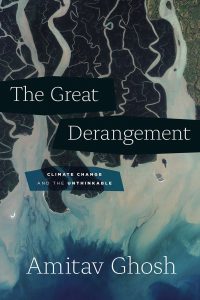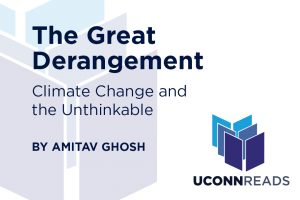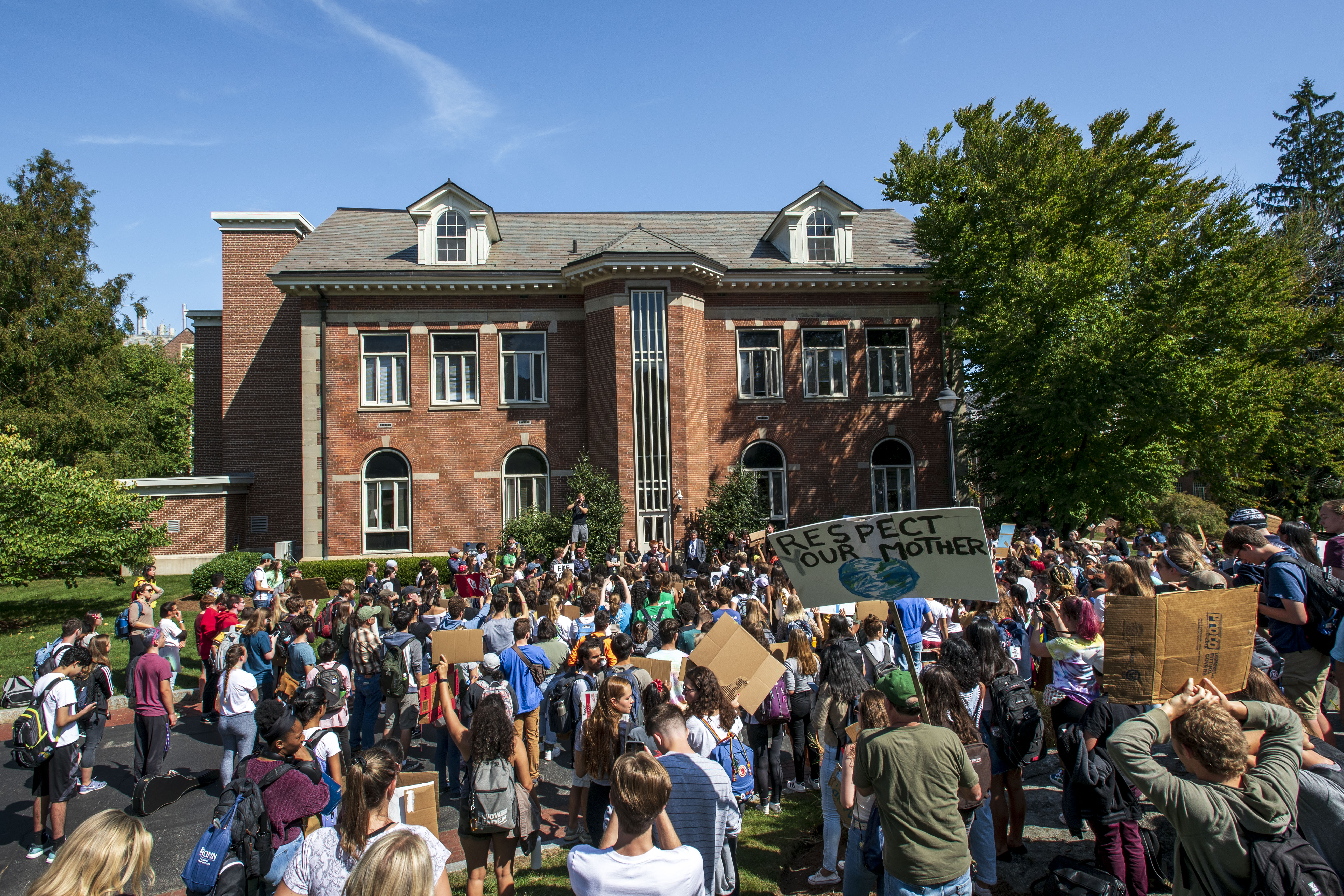The 2020 election was touted as the most important in years for many reasons, but climate change arguably topped that list, since the victor would be able to set us on the right path or push us closer to environmental catastrophe.
Now that President Joe Biden has taken office with a commitment to prioritize the climate, there has been a collective sigh of relief. However, the lack of progress toward sustainable policies and climate change mitigation from the last administration will take years to set right. With the turmoil of the election barely behind us, to say the 2020-2021 selection of UConn Reads is timely is an understatement.

As someone who is fairly enmeshed in climate research and environmental and activism, the author is someone who I have followed for some time. Amitav Ghosh is a rarity in the literary world, in that he writes about climate change in fictional settings – or what is likely to one day be described as historical fiction. The fact that this is so rare is part of why he calls this collection of nonfiction essays “The Great Derangement.”
Ghosh starts by describing the startling moment of realization when an object you thought was one thing is revealed as something entirely different: a branch that is actually a snake, or an asteroid that is actually a space monster (I do love a good “Empire Strikes Back” reference). We go about our lives and often take for granted – or ignore – the important details around us, and get lulled into a sense of security and normalcy.
We are living in a time when “hundred year” storms and catastrophic wildfires are the norm, and presidential debates still include questions like “Do you believe in climate change?” The storms, fires, and other extreme weather events are happening every year with greater frequency and intensity, and the science is clear that climate change is a crisis that should not to be lumped in with other things we may or may not believe in, like Santa Claus.
Yet the realities of the climate crisis still look like branches to many, rather than the snakes they truly are. That is what is at the heart of Ghosh’s essays: as a culture, we are in crisis because we lack imagination to fathom what is going on. Though awareness is growing, we aren’t processing this as a culture.
Ghosh focuses on the literary world and how it has so far neglected climate change, but other art forms seem to be lagging as well. Art helps us process social change and cultural crises; people create art to come to terms with what is going on around them. Arthur Miller wrote “The Crucible” at the height of McCarthyism, implicitly drawing parallels between the two. Billie Holiday’s rendition of “Strange Fruit,” originally a poem written by Abel Meeropol in response to white mobs lynching Black people in the United States, became a rallying cry for the civil rights movement. The art of Keith Haring was an act of defiance against our nation’s leadership’s deadly silence early in the AIDS crisis.
Unlike each of these pressing issues, climate change impacts everyone in one way or another, regardless of who we are. Is this immensity the roadblock to our imagination? Or, is it that false sense of security?
It wasn’t until fairly recently that climate change was even taken seriously as a topic on the nightly news. This is compounded by the fact that for many of us, social media is the main source of news, and whether that news is legitimate or not can be hard to determine. Screens are an escape and provide sand for us to bury our heads in, until we can look away no longer.

“The Great Derangement” is full of “light bulb moments,” some of which I am ashamed had not occurred to me until reading Ghosh’s essays. For instance, the way British colonialism served as a calculated roadblock for industrialization in the Indian subcontinent and other colonies. The postcolonial societies there have been making up for lost time by industrializing, and now find themselves blamed by the former colonial powers in the West for today’s rising carbon emissions, a double standard that illustrates why climate justice is such a crucial part of understanding our moment.
Ghosh also suggests that future climate catastrophes will become generational markers, the next “Where were you on 9/11?” or “Where were you when you heard JFK was shot?” Instead we will have “Where were you when we passed 500ppm?”
“In a substantially altered world, when sea-level rise has swallowed the Sundarbans and made cities like Kolkata, New York, and Bangkok uninhabitable,” Ghosh writes, “When readers and museum-goers turn to the art and literature of our time, will they not look, first and most urgently, for traces and portents of the altered world of their inheritance? And when they fail to find them, what should they do – what can they do – other than to conclude that ours was a time when most forms of art and literature were drawn into modes of concealment that prevented people from recognizing the realities of their plight? Quite possibly, then, this era, which so congratulates itself on its self-awareness, will come to be known as the time of the Great Derangement.”
Will those future learners just find the cute cat photos and memes we leave all over the Internet? Where are the songs, the works of art, and theatrical representations to draw attention to the climate crisis?
Especially now, during the COVID-19 pandemic, spending even more of our lives in front of a screen has become a necessity for those of us fortunate enough to continue working remotely. Even though much of our collective screentime concerns bad news and so-called “doom scrolling,” we are missing out on so much time to create. Seemingly at home in the matrix, we miss out on time to appreciate and love nature, and to care that the branches we grasp are actually snakes. Without love and appreciation, how can we switch from business as usual to the much-needed change of course?
The objective is not “saving the planet” — the planet will be here with or without us. It is about saving ourselves, and not dragging untold numbers of ecosystems and the creatures within them down with us.
Climate change is now less of a debate and is thankfully becoming widely accepted. As more and more humans come to terms with the crisis, “The Great Derangement” may help open our eyes, process, grieve, and hopefully get creating. Also, be careful when you reach for that branch; it might be a snake.



